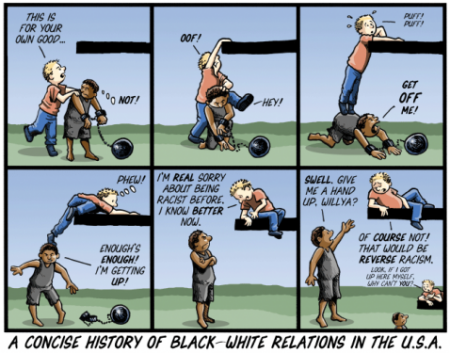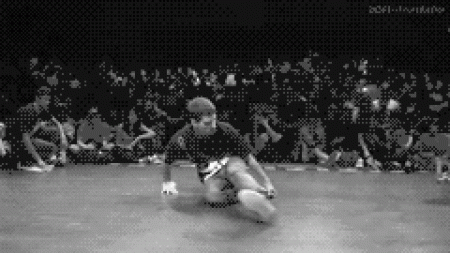Serendip is an independent site partnering with faculty at multiple colleges and universities around the world. Happy exploring!
Cathy's blog

very weak post that I was wondering if I should even post
So this week, in terms of ed placement I've been trying to discover more of Asian culture in relation to America. In my placement I figure out that I knew nothing of the Asian American experience even thought I want to honor everyone's diversity in my classroom someday. I wouldn't have picked up on this if it hadn't been for my suburban placement having only white and asian kids. I was taught to look at majority and minority balances in terms of possible difference and then I thought "Oh no, I want to teach at a suburban school someday, but white culture is easy to adapt to, what do I do with the Asians?" This was really weird for me because I pride myself on being multiculturally sensitive becuase of my backgrounds, and what was even weirder is that my best friend since 3rd grade is Viet, but I still don't feel like I know how her race and culture relate to her experience. For some reason, that racial experience has always been invisible to me, despite my exposure to literature about the Hmong in the US and other groups. I decided to reconsile this dissonace by bugging my asian friends to help me learn more and I hope to take an Asian American history/culture class before I graduate. I can't believe I didn't notice one of the biggest groups in America in my quest to be inclusive. I'm really embarressed about this, but at least now I know and I can work towards making that better.

Reverse Racism, Descriptive representation and Joe v. Margret
(I'm sorry if this is long, my real journal entry is longer).
I wrote my post this week on chapter 3 of the book our class is reading Teaching for Social Justice by Connie North. In one of the chapters one of the characters, Joe, acquires his social studies gig as a teacher and it is clear that he would not have gotten it if he wasn’t a minority. The district didn’t want a “blond, blue-eyed woman” despite the fact that she had masters in African American history and Joe did not. The idea of reverse racism is a prevalent one these days as I have heard some of my friends wonder if they actually have to fight harder because they are white, and some councilors joke about how colleges need minority students so that can make it more likely that a student who is a minority will be accepted into a school of their choice. I’m not sure where I stand with this issue. I am a political science major and last semester we talked about descriptive and substantive representation. In the first, constituents want their politician to not only stand up for their beliefs but also look like them, and in substantive constituents also want a representative who will advocate for their best interests, but the person doesn’t have to look like them.


Journal 5: Difference and Diagnosis
I'm still thinking about the Ted talk we saw in class. The ideas of pit crew and diagnosis really resonated with me. There are so many applications! I think what stood out was the diagnosis bit where the same way doctors try to see if their patients had anything they knew how to treat, is kind of what teachers try to do by labeling. Sometimes these labels help them identify problems like “slow math learner” but other times these labels are used to blame a child’s ability on a medical condition like ADD. I guess if they can pinpoint that a condition is the cause of the failure then the teacher is no longer responsible. Or perhaps it just helps them target the difference and change it until its normal. This is also a way to get more resources to the student. I cannot remember the reading but in my Critical Issues class we read that diagnosing a student with a condition or disability or other learning problem is the best chance the student has to getting resources and aid allocated to them, otherwise there is not much that can be done. This is tragically sad, and a good place for a pit crew. With a pit crew, more resources can go to the student in need, and every student. Perhaps instead of trying to “diagnose” our students we should embrace their differences. Sure, sometimes their differences might make life more difficult for the teacher, but I’ve found that the best rewards are often a result of engaging with difference. We shouldn’t try to assimilate differences and absorb them; we should embrace them and learn.

super late post #3 becuase I thought I did post..whoops
Hey guys,
Yep, I did forget to post this week, but better late than never. I decided to write my post in Spanish becuase I was inspired by Noa's Arc. In it the author suggests encouraging children to write journal entries in their native language, so I said, why not. I decided to write about my paper as a way to think through my in school example. In it I give reasons why a student, no matter how brilliant, social and outgoing, would not fit in at my school becuase of the way he speaks. I was thinking of a young man I had been introduced to by Brown University's presentation on their "Hip-Hop Scholarship" aimed at diversifying their student body. The guys was obviously smarter than me but he spoke in a way that would make him seem uneducated and so I wondered if he would be accepted into my school because of his academic carrer, but either fail the interview or not feel welcome at my school because of where he comes from and how much that effects his speech. I concluded not. Everyone here speaks in the same tone, within one standard deviation of the same word choice and style, and he's at about three standard deviations away from us, so I don't think my school would be good for him which is unfortunate because how many brilliant minds is my school missing out on because of this. Should he change becuase of his speech is holding him back? Is it? I'm not sure about any of this but it made for an interesting discussion in my essay.


Email to Alice,
On Saturday night, I sent Alice an email that began like this, "Hello Prof. Alice,
I decided to read the June Jordan article because it really interested me in class, but I still have a few burning questions, especially after our last class. How can one not betray themselves, and still achieve an ends within a society where who they are is contrary to the power structures in place. In other words, how can I work against the system within the system? Should I play along with them in order to achieve my ends? Or should I toss it all aside and be me, write like me, and talk like me?"

code switching between Bronx slang, kid Spanish, academic English and more.
I I like to write my posts in a cute little teal journal, accurately labled "thoughts." I wondered what the destiny of this book would be and I'm happy it's this. My entry started with three stick figure photos; the first was me being talked at by a teacher. The second was me talking to an adult and the third was me talking with a peer. The story then described an interaction I had with an older person in youth group. He asked me why I talked like a white person. At the time, that really bothered me, because it made me feel uncool and out of place. So then I would try to use more slang, but it didn't really help my "cool" cause becuase I sounded very off. This led me to think about the different languages I have to negotiate on any given day when I was little. With my mother I would have to speak Spanish, but my Spanish was never really eloquent, and then with friends I would have to use slang becuase my academic English freaked them out, and then with teachers I would have to use academic English. With language, I never really felt proficient with any of the three, but I'm starting to accept that all three of these are very much a part of the person I am today.


